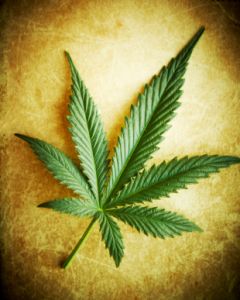 A judge in Toronto has ruled against a church's bid to use marijuana as a religious sacrament. Church members had argued that the prohibition against marijuana use impinged on their religious freedom, but prosecutors argued that allowing one church to use the substance would be a dangerous step closer toward legalization of marijuana. At the heart of the issue is the question whether a drug which is reasonably harmless, but which has spiritual significance, should be banned from church use.
A judge in Toronto has ruled against a church's bid to use marijuana as a religious sacrament. Church members had argued that the prohibition against marijuana use impinged on their religious freedom, but prosecutors argued that allowing one church to use the substance would be a dangerous step closer toward legalization of marijuana. At the heart of the issue is the question whether a drug which is reasonably harmless, but which has spiritual significance, should be banned from church use.
Justice Thea Herman arrived at her decision after two members of the Church of the Universe were charged with drug trafficking. The church members, Peter Styrsky and Shahrooz Kharaghani, are accused of selling marijuana to undercover police officers posting as new church members in 2006. In their defense, the men argued that, in their religion, unrestricted access to and use of cannabis was a form of spiritual transcendence and communion with the divine, and as such it must be protected as the free exercise of religion under Section 2 of the Charter of Rights and Freedoms. Prosecutors, however, argued that if the government legalized cannabis use for the Church of the Universe, it would be compelled to legalize it for all other churches within Canada, too. In addition, the Supreme Court of Canada rejected an application by the church's founders to appeal a 2007 drug conviction.
For the Church of the Universe, there is a special relationship between psychoactive drug use and spirituality, and cannabis in particular has a holy and sacred quality. According to the Canadian Press, "the church refers to marijuana as God's 'Tree of Life' and that God's children have a right to use it as a sacrament in 'their lives and worship.'" But for church members, the drug is not intended only for inhalation, but also for "wearing", "growing", "writing on", and "eating", rather like a consecrated charm, ward, or amulet.
Christian denominations have a similar tradition in the form of sacramental altar wine, consecrated anointing oil, and the Eucharist, or Communion. Certain substances are believed either to have an inherent sacred quality, or to have that quality imparted on them through a ceremonial blessing. Aboriginal peoples of the Americas also have a tradition of ingesting or inhaling certain substances as a form of communion with the divine, particularly in the use of peyote and ayahuasca in shamanic rituals or spirit-journeys. The problem, then, becomes whether cannabis should be treated any differently, given its psychoactive properties.
At first glance, the judge's decision does seem to restrict the religious freedom of the Church of the Universe, but one might argue that at least this restriction applies to all of the world's religions and faith traditions within Canada, without exception. At the same time, however, one might ask why the law should not simply permit all religions to treat marijuana as a sacrament. Marijuana use does not necessarily harm anybody, and if it does, it only harms the user, but that is the user's voluntary choice as a self-sovereign adult. Meanwhile, it is also deemed a sacred act of spiritual transcendence in churches such as Church of the Universe. Thus, one might conclude, the law reflects a stubbornly irrational and miserly attitude toward spiritual seekers who use drugs to increase their awareness.
Share your thoughts as an interfaith minister ordained online. Should the governments of Ontario and Canada be spending money prosecuting church members for distributing a harmless religious sacrament?
Source:


0 comments